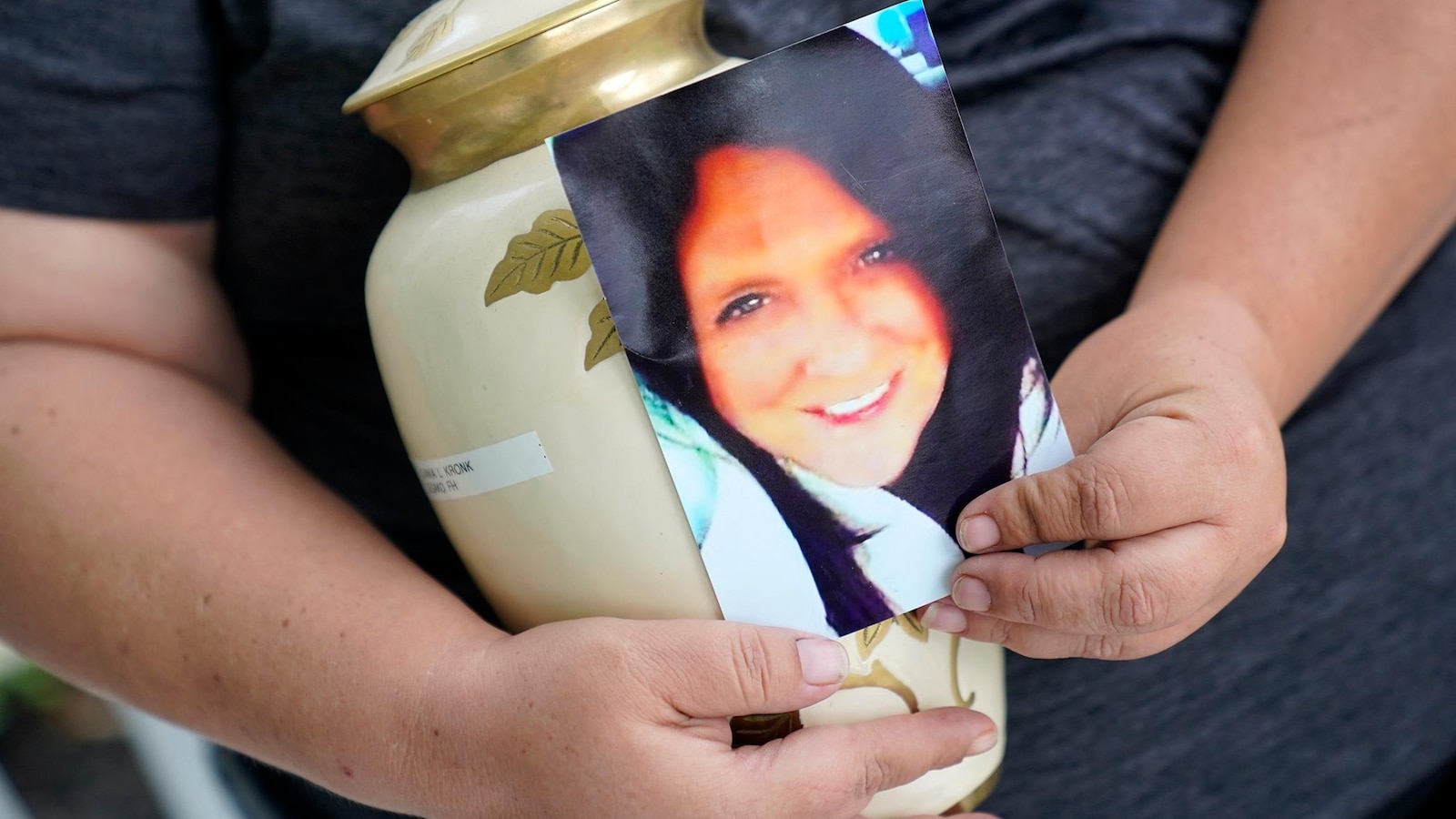
Prosecutors this week dropped an involuntary manslaughter case against a 911 dispatcher in Pennsylvania who had been accused of failing to send an ambulance to the rural home of a woman who was found dead a day later of internal bleeding.
Greene County District Attorney Brianna Vanata said she acted to end the case against Leon “Lee” Price after reviewing an investigator’s report that said he felt charges were not justified in the July 2020 death of 54-year-old Diania Kronk.
“There was just no criminal culpability here,” Vanata said in a phone interview Thursday. She said the decision to pursue charges two years after Kronk died — and shortly after her family filed a lawsuit over it — was a mistake by the then-district attorney, Dave Russo.
“I’m not sure what the previous district attorney was thinking,” Vanata said. “That’s where I’m at.”
Price’s defense lawyer, Timothy Ross, said Thursday the charges had been a stressful ordeal for his client, who he described as an upstanding employee who had consistently maintained he was innocent of the allegations. In the wake of Kronk’s death, Ross said, an investigator had told Price he would not be charged.
Ross said Price is “moving forward, rebuilding his reputation in this community and just happy to put these charges behind him.”
Investigators had said Price was reluctant to dispatch help without getting more assurances Kronk would actually go to the hospital.
Vanata said she based her decision on an August 2020 memo by Greene County Regional Police Chief Zachary Sams that said Price may not have been trained properly and the investigator felt Price’s actions did not “rise to the levels necessary to facilitate a criminal charge.”
On a recording, Price was heard questioning Kronk’s daughter Kelly Titchenell for about four minutes. As Titchenell described her mother’s condition, Price asked if Kronk was “willing to go” to the hospital about a half-hour away from her home in Sycamore. Titchenell assured him she would and said she was concerned her mother might die.
Titchenell told the dispatcher Kronk had been drinking heavily for some weeks, she had been losing weight and appeared to be turning yellow.
Price said he would send an ambulance but then added that “we really need to make sure she’s willing to go.” Price asked Titchenell to call once she got to Kronk’s home, but Titchenell said she could not find her mother’s landline and there was not cell service.
Titchenell said that when she got to Kronk’s home, her mother was nude on the porch and talking incoherently, telling her repeatedly she was OK. Titchenell said an autopsy attributed Kronk’s death to internal bleeding.
Titchenell did not call 911 again on her way home, believing that her uncle would soon check on her. The uncle discovered the next day that Kronk had died.
Russo said there was ample evidence and called Vanata’s move to drop the case a political decision. Russo said Thursday the involuntary manslaughter charge had survived previous defense efforts to have it dismissed.
At Vanata’s request, a judge withdrew the charges on Monday. Jury selection and trial had been scheduled for next week.
Vanata said she approached Price about a potential plea bargain to a lesser charge but he did not take the deal. Titchenell questioned the decision to drop charges.
“I feel that there was too much for the new district attorney to go through,” Titchenell said in a phone interview Wednesday. “She would have had to put in a lot of time and work to understand this case, to go over everything. I feel there was too much for her, so she was trying to basically get away without going to trial.”
Vanata said she spent “many, many hours” going through the evidence since taking office in January. She beat Russo in the 2023 GOP primary by 44 percentage points. “It definitely was not an easy decision to come to.”
Price is no longer a dispatcher and now works for Greene County in maintenance.
“Mr. Price did lose his job and this, I’m sure, has been an ordeal for him,” Vanata said. “But also I feel so horrible for the family that had to go through this as well. It dragged them along for four years also.”
A 911 dispatcher in Pennsylvania who was initially facing charges of involuntary manslaughter in connection with the death of a woman has had the charges dropped. The dispatcher, whose name has not been released to the public, was accused of failing to properly handle a call for help from the woman, which ultimately led to her death.
The incident occurred on a busy night in the city, when the dispatcher received a call from the woman reporting a medical emergency. The dispatcher allegedly failed to send help in a timely manner, leading to a delay in emergency services arriving at the scene. Tragically, the woman passed away before help could reach her.
The decision to drop the charges against the dispatcher has sparked controversy and debate among residents of Pennsylvania. Some believe that the dispatcher should be held accountable for their actions, while others argue that it was a mistake and not a deliberate act of negligence.
In a statement released by the district attorney’s office, it was explained that after a thorough investigation, it was determined that there was not enough evidence to prove that the dispatcher’s actions directly caused the woman’s death. The decision to drop the charges was made in accordance with the law and based on the available evidence.
This case highlights the difficult and high-pressure nature of being a 911 dispatcher. Dispatchers are often tasked with making split-second decisions that can have life or death consequences. While mistakes can and do happen, it is important for dispatchers to receive proper training and support to ensure that they are able to handle emergency situations effectively.
Moving forward, it is crucial for 911 dispatchers in Pennsylvania and across the country to receive ongoing training and support to prevent similar incidents from occurring in the future. By learning from this case and implementing changes to improve emergency response protocols, we can work towards ensuring the safety and well-being of all individuals who rely on 911 services.


